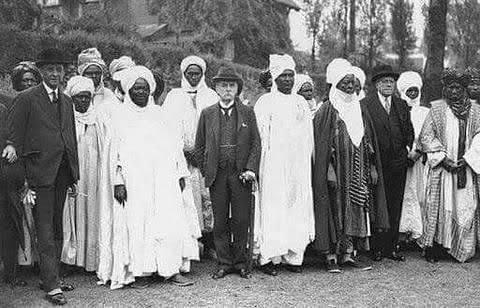The Effects of Colonial Masters on African Development

For centuries, Africa has been home to rich cultures, advanced kingdoms, vibrant trade systems, and diverse civilizations. But the arrival of colonial powers drastically altered the continent’s path of development. While some may argue that colonialism introduced certain modern systems, the long-term effects on Africa’s growth, identity, and independence were overwhelmingly damaging.
In this blog post, we’ll explore the true impact of colonialism on African development—the setbacks, the consequences, and the few lasting legacies.
🌍
1. Exploitation of Resources
Colonialism was never about developing Africa. It was about extracting Africa’s wealth to build European empires. Gold, diamonds, oil, ivory, and rubber were taken in massive quantities, often through forced labor or violence. Railways and roads were built not to connect African cities for progress, but to move raw materials from the mines to the ports.
In short, Africa became a supplier of raw resources, while Europe became richer and more industrialized at the continent’s expense.
🏛️
2. Destruction of Indigenous Systems
Before colonization, African societies had complex political, economic, and legal systems. Kings, chiefs, councils, and elders governed effectively in many regions. These systems were replaced by foreign governance structures that ignored local customs and imposed Western rule. Traditional economies were also disrupted, as local industries were replaced with export-focused farming and mining controlled by Europeans.
This left a deep disconnect between African people and the systems that governed them—a challenge that continues even today.
🧱
3. Artificial Borders and Ethnic Division
Perhaps one of the most damaging legacies of colonialism is the arbitrary borders drawn by European powers. These borders split ethnic groups across countries and forced rival groups into one nation without their consent. The result? Decades of conflict, tribal tension, and civil wars in places like Nigeria, Sudan, and Rwanda.
The borders were never meant to unite Africa—they were designed to divide and rule.
⚖️
4. Social Injustice and Discrimination
Colonial rule was built on racism. Africans were denied equal education, fair treatment, and access to leadership roles. They were seen as laborers and servants in their own land. Schools were limited, healthcare was poor, and development was only focused on areas that served colonial interests.
This has had a long-term effect on education, self-esteem, and economic inclusion in many African societies.
🧷
5. Dependency and Weak Institutions
Colonial powers did not build strong, independent African institutions. They created centralized systems that depended on European direction. After independence, many African countries inherited weak government structures, poor leadership models, and economies tied to foreign trade and aid.
Even today, many African nations struggle to break free from the economic patterns set during colonial rule.
The colonial era left behind deep scars. From economic dependency to ethnic divisions, weak institutions to social trauma, Africa’s struggle for true development is inseparable from its colonial past.








